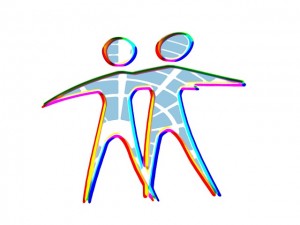 Just as neurotypicals who befriend autistics can help them gain confidence and maintain a healthy emotional state, neurotypical parents can also benefit from establishing friendships with autistic adults. In fact, it is a useful first step to take upon discovering your child’s diagnosis.
Just as neurotypicals who befriend autistics can help them gain confidence and maintain a healthy emotional state, neurotypical parents can also benefit from establishing friendships with autistic adults. In fact, it is a useful first step to take upon discovering your child’s diagnosis.
Why Should You Find an Autistic Adult Friend?
Autistic people work and live in a variety of different environments, and it is probably easier than you think to reach out to them. Too often autistic adults are the ones who are avoided in neurotypical social settings. There are several reasons why finding your own autistic friends is important:
- They can help– Like many of the autistics I interviewed for Parenting Advice from 12 Autistics, many will have wonderful, unique advice to offer about their first-hand experiences growing up as autistic individuals. You might learn specific details of how society favors neurotypicals and useful ways to help your child survive our cultural expectations and adjust her environment to include and welcome her.
- It can enrich your life– While it may be more comfortable to surround yourself with like-minded people with similar interests, you will inevitably learn more if you open yourself up to new relationships. Autistic people have the special ability to see the world differently than you do, which can enrich your perceptions and impact the way you live.
- It validates your worldview–Establishing a friendship with autistic adults helps authenticate your acceptance of autism in the world and models this belief. Your child will know you value the human dignity of autistic people because she will see you in action, connecting as equals, as human adults.
- It promotes acceptance and peace–Embracing autistic friendship is a step to living peacefully in a world of neurodiversity and dissolving stereotypes that have unfairly isolated autistics for decades.
Where Can I Find Autistic Adults?
So where can you find autistic adults? Everywhere. You probably interact with autistic adults on a fairly regular basis whether you realize it or not.
Begin by taking inventory of the people you interact with on a regular basis and how you treat them. Make sure your children aren’t observing you making fun of other adults or speaking ill of them because of a social quirk or “strange” behavior. You need to be a role model of acceptance and understanding for your children. Of course, behaviors that fall outside your moral code of conduct must be addressed and appropriately condemned; however, in general, try to show your children that everyone should be treated with dignity and respect by acting this way yourself in front of other adults and speaking respectfully about other adults at home as well.
You might also search for autism support groups or other autism events. There are support groups for a variety of different people (autistics, autistic caregivers, neurotypical spouses of autistics, etc.). In a support group, you can meet other parents who have autistic children of all ages. They may know other autistic adults who they could introduce you to. Many cities also host disability fairs and autism conferences, workshops or fundraisers. These events have a wealth of literature and resources supporting autism advocacy. You may meet autistic people at these events or learn about formal or informal programs where you can spend time with them.
Finally, ask your local disability resource center if they invite autistic people to speak at their events or participate in parent support groups. If they don’t, then perhaps your inquiry will encourage them to consider doing so. Parents sometimes fall into the routine of only seeking advice and company from doctors, therapists, and other parents of autistic children. But if you regularly seek input from autistic individuals whenever possible, you are guaranteed to be enlightened and just may discover friendship in the process.
Welcome and engage with your autistic adult peers the same way you hope society will treat your child in 20 or 30 years.

Annie
Jenna